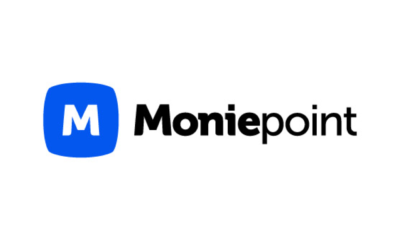Fintech
FG to Roll Out Regulations for Fintech, Other Digital Investment
Published
4 years agoon

Amid upsurge in financial technologies (fintechs) start-ups and patronage of digital assets and digital investment platforms, Nigeria is concluding arrangements to roll out its first regulatory framework for digital investment advisory services providers.
The forthcoming regulatory for digital investment advisory services providers, otherwise known as “Robo” because of the deployment of robotic interface, is the first phase of larger regulatory frameworks that include digital assets, offerings and intercontinental, borderless trading on emerging securities, according to sources.
A draft of the proposed regulatory framework for digital advisory services obtained by The Nation describes “Robo” or digital advisory services as “the provision of advice on investment products using automated, algorithm-based tools which are client-facing, with little or no human adviser interaction in the advisory process”.
Digital advisory services are categorised into two under the framework- fully automated and semi-automated. A fully-automated “Robo” advisory services provider requires no human adviser intervention in the entire advisory process while a semi-automated service allows minimal human intervention or interaction.
When it comes into effect, the new regulatory framework will become the basic regulatory document fo the Nigeria and shall be applicable to all institutional and individual capital market operators and persons offering or seeking to offer digital advisory services in Nigeria.
The framework brings digital or “Robo”advisors under the regulatory purview of Securities and Exchange Commission (SEC), Nigeria’s apex capital market regulator.
According to the proposed framework, digital investment advisers are required to put in place “adequate policies, procedures and controls to mitigate against money laundering and terrorism financing risks and comply with the Commission’s regulations on Anti-Money Laundering and Combating the Financing of Terrorism Act, 2013”.
The “Robo” advisers are also required to take steps to address specific risks associated with Non-Face-To- Face (NFTF) business relations with a client and employ additional checks to mitigate the risk of impersonation when on-boarding clients through a NFTF means.
“Robo” Advisers are also expected to provide sufficient information to their clients to enable them make informed investment decisions. with such disclosures presented in plain English and in clear simple language.
In line with the above, a digital investment adviser shall disclose to his client in writing the assumptions, limitations and risks of the algorithms, circumstances under which the Robo Advisers may override the algorithms or temporarily halt the robo advisory service; and any material adjustments to the algorithms.
To avoid conflict of interest, “Robo” advisers are required to comply with the disclosure requirements on conflicts of interest set out in the Code of Conduct for Employees of Capital Market Operators as well as disclose in writing to their clients, any actual or potential conflict of interest arising from any connection to or association with any product provider, including any material information or facts that may compromise their objectivity or independence.
“In the context of their business model, “Robo” advisers shall disclose situations where their algorithms are designed to direct clients to invest in products managed by their affiliates,” the draft stated.
With the growing investment of Nigerians in overseas-listed Investment products, the draft framework requires “Robo” advisers to provide a risk warning statement to their clients at the point of account opening and when advising them on overseas-listed investment products. Also, when advising on overseas-listed investment products, “Robo” advisers shall assess the merits of the products, as well as the client’s investment objectives, financial situation and particular needs as well as ensuring that all these are not in violation of any applicable laws and regulations.
To safeguard the client-facing tools which are primarily algorithm-driven, a “Robo” or digital investment adviser shall put in place adequate governance and supervisory arrangements to effectively mitigate against fault or bias in the algorithms.
The board and senior management of the “Robo” adviser shall be responsible for maintaining effective oversight and governance of the client- facing tool and, ensure that there are sufficient resources to monitor and supervise the performance of algorithms.
The “Robo” adviser should be adequately staffed with persons who have the competency and expertise to develop and review the methodology of the algorithms. Adequate training should also be provided to all staff members who use the client-facing tool.
“The board and senior management of the “Robo” adviser shall also put in place systems and processes to ensure a sound risk management culture and environment in its firm, as well as compliance with the relevant rules and regulations,” the draft stated.
The responsibilities of the directors of the digital investment advisory firms or platforms include approving the design and methodology development of the client-facing tool and ensuring its proper maintenance, approving the policies and procedures that apply to the systems and processes of the client-facing tool, maintaining oversight over the management of the client-facing tool, such as designating appropriate personnel to approve changes to the algorithms, having security arrangements to identify and prevent unauthorised access to the algorithms, ensuring that the requirements set out in the SEC’s guidelines on technology risk management are adhered to and maintaining proper documentation on the design and development of the algorithms.
In ensuring accountability and utmost responsibility, the proposed rules state that while the board and senior management may delegate the daily oversight and governance of the client-facing tools to other personnel, the board and senior management remain ultimately responsible and accountable for the proper development, monitoring and testing of the client-facing tools.
Also, in developing the client-facing tools, “Robo” advisers shall ensure that the methodology of the algorithms behind the client-facing tool is sufficiently robust, that the tool collects all necessary information and sufficiently analyses same to make a suitable recommendation, including have proper mechanisms to identify and resolve contradictory or inconsistent responses from clients and have controls in place to identify and eliminate clients who are unsuitable for investing.
Additionally, “Robo” advisers shall perform sufficient testing, prior to the launch of the tool and when changes are made to the tool, to detect any error or bias in the algorithms and to consistently and reliably ensure that the algorithms correctly classify clients according to their risk profiles based on inputs provided by them.
In particular, the “Robo” adviser shall conduct back-testing using hypothetical inputs to ensure that the risk profiles generated by the algorithms are in line with its risk profiling methodology. The testing shall ensure that the algorithm scores and assigns risk profiles to clients correctly and consistently; and that the algorithms produce the intended asset allocation and investment recommendation according to the “Robo” adviser’s risk profiling methodology.
Besides, the “Robo” advisers shall have policies, procedures and controls in place to monitor and test the algorithms on a regular basis to ensure that they are performing as intended. At the minimum, such processes should include access controls to manage changes to the algorithms whenever necessary, controls to detect any error or bias in the algorithms, controls to suspend the provision of advice if an error or bias within the algorithms is detected and compliance checks on the quality of advice provided by the client-facing tool. Such checks shall be conducted regularly and when there are changes to the algorithms, including post-transaction sample testing, and shall be reviewed by an independent and qualified human adviser to ensure compliance with the requirements of extant laws and regulations.
According to the proposed framework, the digital investment advisers shall implement internal policies and procedures to address technology risks while also meeting the requirements set out in SEC’s guidelines on technology risk management (TRM) and also refer to the TRM guidelines for industry best practice which they are expected to adopt.
Digital advisers shall perform a gap analysis against the requirements set out in the TRM guidelines to ensure that all gaps are adequately mitigated prior to the launch of the client-facing tools and also when changes are made to these tools.
The digital investment advisers are also required to have a reasonable basis for recommending any investment product to a person who may reasonably be expected to rely on the recommendation while also ensuring that a recommendation takes into account a client’s investment objectives, financial situation and particular needs.
In assessing the suitability of investment advice, a digital adviser shall take reasonable steps to collect and document information on the financial objectives of the client, the risk tolerance of the client, the employment status of the client, the financial situation of the client, including assets, liabilities, cash flow and income, the source and amount of the client’s regular income, the financial commitments of the client, the current investment portfolio of the client, including any life insurance policy, whether the amount to be invested is a substantial portion of the client’s assets; and for any recommendation made in respect of life policies, the number of dependants of the client and the extent and duration of the financial support required for each of the dependants.
However, a fully automated “Robo” adviser may exempt the collection of full information on a client’s financial circumstances if the advice is fully-automated, with no human adviser intervention in the advisory process or where human interactions are limited to providing technical assistance such as, assisting clients on IT-related issues or clarifying with clients on their responses when inconsistencies are noted as well as where there are in-built “knock-out” or threshold questions to effectively identify and eliminate unsuitable clients and there are controls in place to identify and follow up on inconsistent responses provided by clients. Such exemption also requires provision of a risk disclosure statement to clients to alert them that the recommendation does not take into consideration their financial circumstances, at the point when the recommendations are provided to them; and when the advice is limited to instruments within the regulation of SEC.
Notwithstanding, all “Robo” advisers shall still take reasonable steps to collect information on the client’s financial objectives and risk tolerance to satisfy themselves that the investment recommendation is suitable and to assess if a client possesses the relevant knowledge and experience to invest in complex instruments through the Customer Knowledge Assessment (CKA) or Customer Account Review (CAR). This applies, regardless of whether the client is self-directed or not.
According to SEC, the proposed new regulatory framework is expected to provide “guidance on the regulatory requirements and expectations in relation to the provision of automated advisory services”.
Is the CEO and Founder of Investors King Limited. He is a seasoned foreign exchange research analyst and a published author on Yahoo Finance, Business Insider, Nasdaq, Entrepreneur.com, Investorplace, and other prominent platforms. With over two decades of experience in global financial markets, Olukoya is well-recognized in the industry.

You may like
-





Moniepoint, OPay Hit Hard As CBN Clamps Down On Nigeria’s Fintech Sector
-








Moniepoint MD Urges Nigerians to Avoid Sharing Account Numbers Publicly to Combat Cybercrime
-


SEC Reaffirms Commitment to Investor Protection Amid Fintech Growth
-




Moniepoint Plans Commercial Bank License, to Establish Physical Offices
-








Moniepoint Becomes Nigeria’s Newest Unicorn with $1 Billion Valuation After $110M Fundraising
-


US Continues to dominate Global FinTech Landscape in Q3 2024, Witnesses Funding of $2.7B



